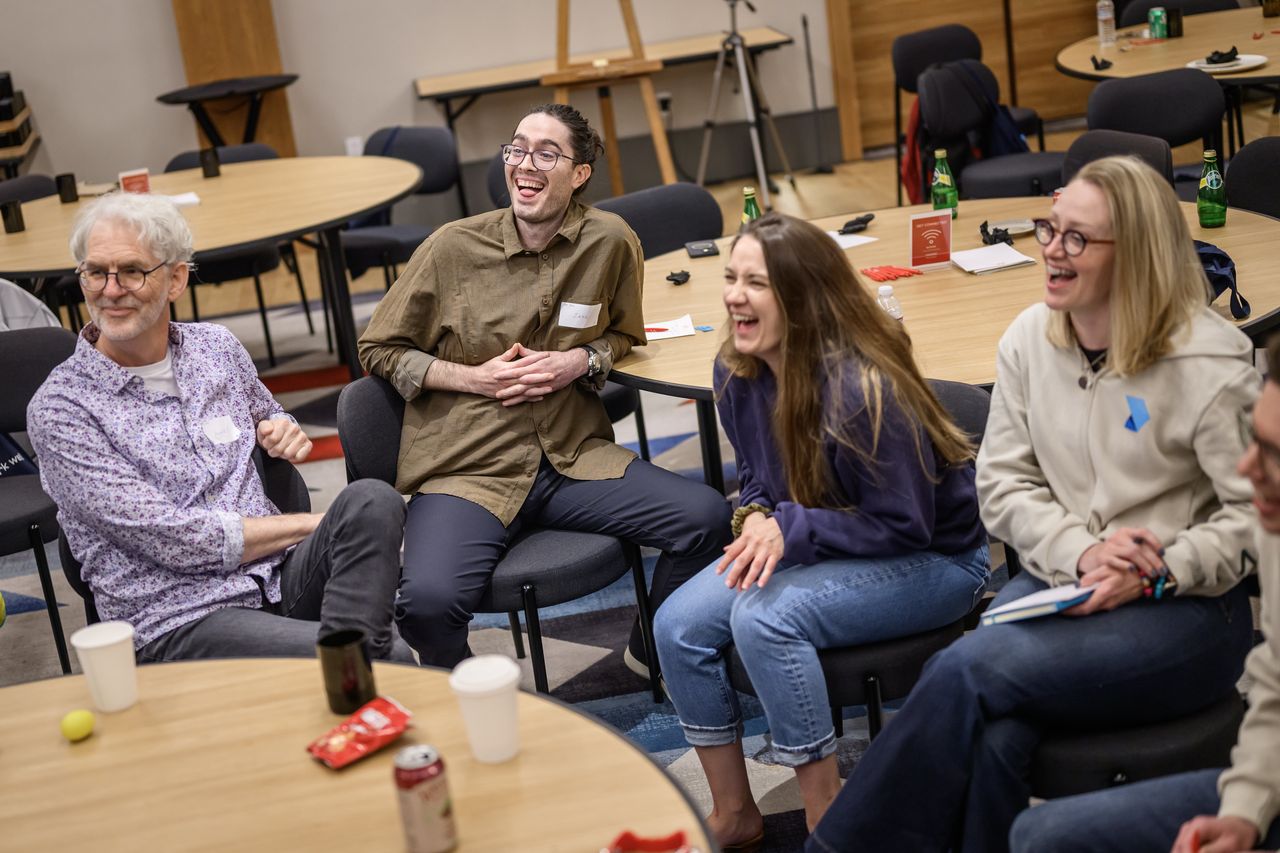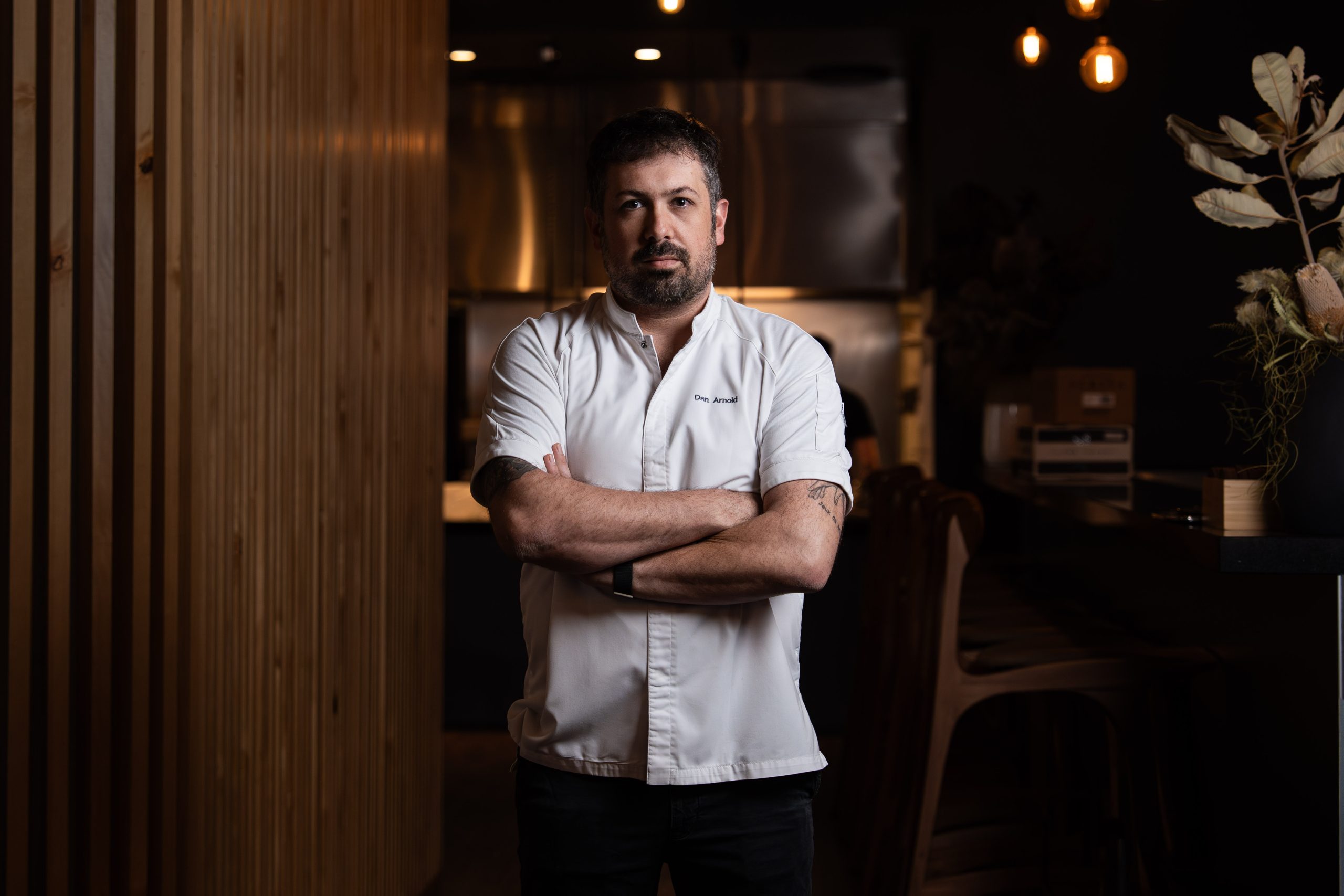Quit Being a Cynic at Work. It’s Holding You Back.
There are ways to fight the tendency to see the worst in everyone
We don’t want to be friends with our co-workers . We don’t want to help out with that project. We don’t trust the CEO…or our boss…or that guy in accounting.
Have we taken our cynicism at work too far?
In some ways, our bad attitude makes sense. Many of us made work our church, only to end up laid off , burned out or underpaid. Now we check out, do less, gossip and snark.
It isn’t getting us anywhere good, according to Jamil Zaki , a Stanford University psychology professor who runs the school’s social neuroscience lab.
“Cynicism, if it were a pill, would really be a poison,” he says.
Zaki has spent years researching sunny concepts such as empathy and compassion. One of his studies, for example, found that giving away money activates a similar part of the brain as eating chocolate. His forthcoming book, “Hope for Cynics,” explores the rise of our darker sides, our belief that other people are selfish, greedy and dishonest.
Betrayed once, we practice what Zaki calls “pre-disappointment,” always assuming others will let us down. The mindset feels productive and cunning, like we’ll be able to protect ourselves. But Zaki says it can actually stunt our careers in the long run, and hurt our mental and physical health.
“By never trusting, cynics never lose,” he writes. “They also never win.”
He assures that you don’t have to become the company cheerleader, or even an optimist, to grow your faith in other people. You do have to take a chance on them, examining your own assumptions and suspending your conviction that you already know how this is going to turn out (not well).
While the approach might initially seem blasphemous to the more negative, sarcastic and skeptical among us—like, say, me—anyone can become less cynical , he says.
You might even find you like it.
How we got here
Once upon a time, Americans were less cynical, Zaki says. A longstanding survey from research organisation NORC at the University of Chicago, which has examined American attitudes since 1972, shows we used to trust each other more. Around the middle of the last century, many hummed along on the rosy glow of plum benefits, robust job security and the knowledge that the chief executive was making, say, 20 times a worker’s pay, instead of 200.
It isn’t that we never complained about work, but Zaki says we repaid our companies’ loyalty with commitment, as part of an unspoken covenant.
Today, that employee-employer pact can feel like a relic of a bygone era. Workers have swapped pensions and equity in their companies for more meagre benefits that put the risk and onus on individuals. Instead of reporting to paternalistic employers, many people now operate under tenuous contracts and gig work.
Some of us work from home in isolation or spend lonely days in the office trapped on back-to-back video calls. There’s less chitchat, less interaction.
“We don’t like people when they’re abstracted,” Zaki says, “but we love people who we actually know.”
Zaki understands why, given all this, we might scoff at the notion that our company is a family, or roll our eyes at the prospect of joining in forced fun at the office happy hour.
Sometimes, I suspect, we also adopt a toughness because we don’t want to look like we’re trying too hard, only to fail or be rejected. Maybe it stems from perfectionism, or anxiety, or insecurity after being exposed to everyone else’s highlight reel on social media for the past 15 years.
Fighting our own worst tendencies
It might seem like all the office snakes are scaling the ladder, but Zaki says studies show cynics’ earnings and leadership potential level off with time. To do good work and attain success, you have to build alliances and share information. Translation: You have to trust someone.
Cynics are prone to poor health, from depression to heart disease, he says, adding that at an organisational level, cynicism can lead to pervasive backstabbing, higher turnover and even corporate corruption.
Cynicism is also a self-fulfilling prophecy, he says. People often mirror how we treat them. Micromanage your team—surveilling them and wresting away their ability to make decisions—and they’ll become the slackers you think they are, doing the bare minimum and buying mouse jigglers to mask time away from their home computers.
“Cynics tell a story full of villains and end up living in it,” he writes.
Resisting cynicism’s pull starts with being open-minded. Examine the data of your life like a scientist would, he says, instead of jumping to conclusions, positive or negative. Think everyone at your job is out for themselves? Ask 10 colleagues for a favour, and see if anyone agrees to help. Convinced every conversation with a co-worker will be painful? Spend a day rating your interactions with them on a scale from 1 to 10.
Challenging your assumptions will leave you pleasantly surprised, Zaki promises, because people often rise to the occasion when we let them. You can start by doling out what you hope to receive. Try engaging in “positive gossip,” speaking highly of others. Take a leap of faith in someone, and do it obviously.
“I trust you,” a manager might say to her direct report. “I really think you can do this.”
Calibrating our hope
Could all this make us too soft? Rejecting cynicism doesn’t mean you can’t hold workers to high standards, Zaki says. Just don’t pit them against each other, with practices like stack rankings, where collaboration is discouraged as workers try to claw above each other on a scoreboard.
Your humour can still be irreverent, even biting, he adds, but jokes should ultimately bring people together or improve something.
“Snark, in the absence of any hope, kind of curdles,” he says.
And don’t be blindly optimistic, he adds. If leadership isn’t giving you any reason to have faith in them, don’t. Find another group to trust—maybe your small team or a union. Band together to provide a buffer to the daily stress of working in your organisation, or enact change by fighting for something better.
“We often underestimate how much influence we have,” he says. “Own that power.”
 Copyright 2020, Dow Jones & Company, Inc. All Rights Reserved Worldwide. LEARN MORE
Copyright 2020, Dow Jones & Company, Inc. All Rights Reserved Worldwide. LEARN MORE
A divide has opened in the tech job market between those with artificial-intelligence skills and everyone else.
A 30-metre masterpiece unveiled in Monaco brings Lamborghini’s supercar drama to the high seas, powered by 7,600 horsepower and unmistakable Italian design.
A divide has opened in the tech job market between those with artificial-intelligence skills and everyone else.
There has rarely, if ever, been so much tech talent available in the job market. Yet many tech companies say good help is hard to find.
What gives?
U.S. colleges more than doubled the number of computer-science degrees awarded from 2013 to 2022, according to federal data. Then came round after round of layoffs at Google, Meta, Amazon, and others.
The Bureau of Labor Statistics predicts businesses will employ 6% fewer computer programmers in 2034 than they did last year.
All of this should, in theory, mean there is an ample supply of eager, capable engineers ready for hire.
But in their feverish pursuit of artificial-intelligence supremacy, employers say there aren’t enough people with the most in-demand skills. The few perceived as AI savants can command multimillion-dollar pay packages. On a second tier of AI savvy, workers can rake in close to $1 million a year .
Landing a job is tough for most everyone else.
Frustrated job seekers contend businesses could expand the AI talent pipeline with a little imagination. The argument is companies should accept that relatively few people have AI-specific experience because the technology is so new. They ought to focus on identifying candidates with transferable skills and let those people learn on the job.
Often, though, companies seem to hold out for dream candidates with deep backgrounds in machine learning. Many AI-related roles go unfilled for weeks or months—or get taken off job boards only to be reposted soon after.
Playing a different game
It is difficult to define what makes an AI all-star, but I’m sorry to report that it’s probably not whatever you’re doing.
Maybe you’re learning how to work more efficiently with the aid of ChatGPT and its robotic brethren. Perhaps you’re taking one of those innumerable AI certificate courses.
You might as well be playing pickup basketball at your local YMCA in hopes of being signed by the Los Angeles Lakers. The AI minds that companies truly covet are almost as rare as professional athletes.
“We’re talking about hundreds of people in the world, at the most,” says Cristóbal Valenzuela, chief executive of Runway, which makes AI image and video tools.
He describes it like this: Picture an AI model as a machine with 1,000 dials. The goal is to train the machine to detect patterns and predict outcomes. To do this, you have to feed it reams of data and know which dials to adjust—and by how much.
The universe of people with the right touch is confined to those with uncanny intuition, genius-level smarts or the foresight (possibly luck) to go into AI many years ago, before it was all the rage.
As a venture-backed startup with about 120 employees, Runway doesn’t necessarily vie with Silicon Valley giants for the AI job market’s version of LeBron James. But when I spoke with Valenzuela recently, his company was advertising base salaries of up to $440,000 for an engineering manager and $490,000 for a director of machine learning.
A job listing like one of these might attract 2,000 applicants in a week, Valenzuela says, and there is a decent chance he won’t pick any of them. A lot of people who claim to be AI literate merely produce “workslop”—generic, low-quality material. He spends a lot of time reading academic journals and browsing GitHub portfolios, and recruiting people whose work impresses him.
In addition to an uncommon skill set, companies trying to win in the hypercompetitive AI arena are scouting for commitment bordering on fanaticism .
Daniel Park is seeking three new members for his nine-person startup. He says he will wait a year or longer if that’s what it takes to fill roles with advertised base salaries of up to $500,000.
He’s looking for “prodigies” willing to work seven days a week. Much of the team lives together in a six-bedroom house in San Francisco.
If this sounds like a lonely existence, Park’s team members may be able to solve their own problem. His company, Pickle, aims to develop personalised AI companions akin to Tony Stark’s Jarvis in “Iron Man.”
Overlooked
James Strawn wasn’t an AI early adopter, and the father of two teenagers doesn’t want to sacrifice his personal life for a job. He is beginning to wonder whether there is still a place for people like him in the tech sector.
He was laid off over the summer after 25 years at Adobe , where he was a senior software quality-assurance engineer. Strawn, 55, started as a contractor and recalls his hiring as a leap of faith by the company.
He had been an artist and graphic designer. The managers who interviewed him figured he could use that background to help make Illustrator and other Adobe software more user-friendly.
Looking for work now, he doesn’t see the same willingness by companies to take a chance on someone whose résumé isn’t a perfect match to the job description. He’s had one interview since his layoff.
“I always thought my years of experience at a high-profile company would at least be enough to get me interviews where I could explain how I could contribute,” says Strawn, who is taking foundational AI courses. “It’s just not like that.”
The trouble for people starting out in AI—whether recent grads or job switchers like Strawn—is that companies see them as a dime a dozen.
“There’s this AI arms race, and the fact of the matter is entry-level people aren’t going to help you win it,” says Matt Massucci, CEO of the tech recruiting firm Hirewell. “There’s this concept of the 10x engineer—the one engineer who can do the work of 10. That’s what companies are really leaning into and paying for.”
He adds that companies can automate some low-level engineering tasks, which frees up more money to throw at high-end talent.
It’s a dynamic that creates a few handsomely paid haves and a lot more have-nots.
On October 2, acclaimed chef Dan Arnold will host an exclusive evening, unveiling a Michelin-inspired menu in a rare masterclass of food, storytelling and flavour.
Ophora Tallawong has launched its final release of quality apartments priced under $700,000.























